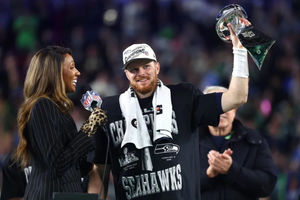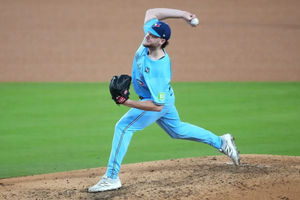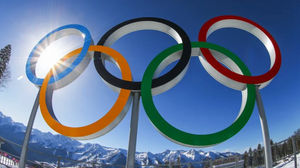School Self-Reports NCAA Violation After Golfer Washes Her Car With "University Water"

The West Coast Conference held its meetings this week, and one item of interest came out via Portland basketball coach Eric Reveno: one school self-reported an NCAA violation because an athlete washed her car on campus.
Yahoo's Jeff Eisenberg dug deeper, and this is what he heard:
A WCC school self-reported an extra benefits violation when university officials caught one of their women's golfers washing her car on campus, according to the source. A secondary violation was ruled to have occurred because the water and hose were not available to regular students and requested the golfer pay back $20, which was deemed to be the value of the water and use of the hose.
At first glance, it looks like just another example of the NCAA's absurd micropolicing, like the rule ( now amended) that athletes could be provided with bagels, but not bagels with cream cheese. But an NCAA spokesperson told Yahoo that they were not involved in the school's decision to penalize the athlete, and probably wouldn't consider the car-washing a benefits violation. So the NCAA isn't being stupid or evil in this case—but the fact that the WCC school wasn't sure what was a violation or not, and self-reported it anyway, says plenty about the NCAA's byzantine rulebook.
John Infante, proprietor of the Bylaw Blog and all-around violation guru, argues that while monitoring water usage might be an overreach, there's a logical reason the bylaws often resort to sweeping, zero-tolerance judgments:
If we take "university water for car washes" to its logical conclusion, we get "personal valet services for athletes." I think it is safe to say there is widespread (but not unanimous) agreement amongst the NCAA membership and even the public that interns washing and waxing athletes' cars during practice or class should not be allowed. Nor should those interns do the athletes' laundry, pick up their dry cleaning, or run other errands for athletes.
So if use of university water should be allowed and a personal assistant provided by the university should not, where is the line drawn? If water is ok, can athletes use university soap? If car wash soap is allowed, what about laundry soap? Is the use of laundry machines then permitted? Can the university build a car wash next to the athletic facilities for athletes to use free of charge?
It's the classic slippery-slope argument, and it makes sense if, and only if, no one bothers with common sense. Of course there's a difference between an athlete using water, a public utility, and a school building a free car wash just for athletes. Just like there's a difference between a conference room bagel spread, and handing out gift cards to McCormick & Schmick's. If it's something a non-athlete wouldn't be allowed, call it a violation. Do other students wash down their cars on campus? Then they should have let this one slide.
Infante's larger point is that if you leave even the tiniest of loopholes, coaches will find them. This is absolutely true, and speaks to the larger problem: the NCAA has a single one-size-fits-all rulebook for its hundreds of D1 schools and thousands of D1 teams, each with their own unique needs and temptations. Why, it's almost as if for-profit amateur athletics are an unsustainable, unpoliceable behemoth bound to devolve into absurdity!
[Photo by jcsmilly/shutterstock]
The Biggest Question Facing Every 2026 MLB Contender
Best NBA Betting Picks for Wednesday Feb. 11th Slate
Atlanta Falcons Bet Big on James Pearce Jr. — and Lost
Why the Road to Super Bowl LXI Runs Through the NFC West
- Super Bowl Betting Preview: Seahawks vs. Patriots Breakdown & Pick
- The Most Fun Super Bowl Prop Bets You Can Make This Year
- Super Bowl 60 Prop Bets: 10 Best Bets for Patriots vs. Seahawks
- UFC Fight Night at the Apex Best Betting Picks and Predictions
- NBA Betting Picks for Friday Feb. 6: Post-Deadline Predictions
- Best College Basketball Betting Picks for Thursday, February 5th
- Edmonton Oilers vs. Calgary Flames Feb 4 NHL Betting Picks












